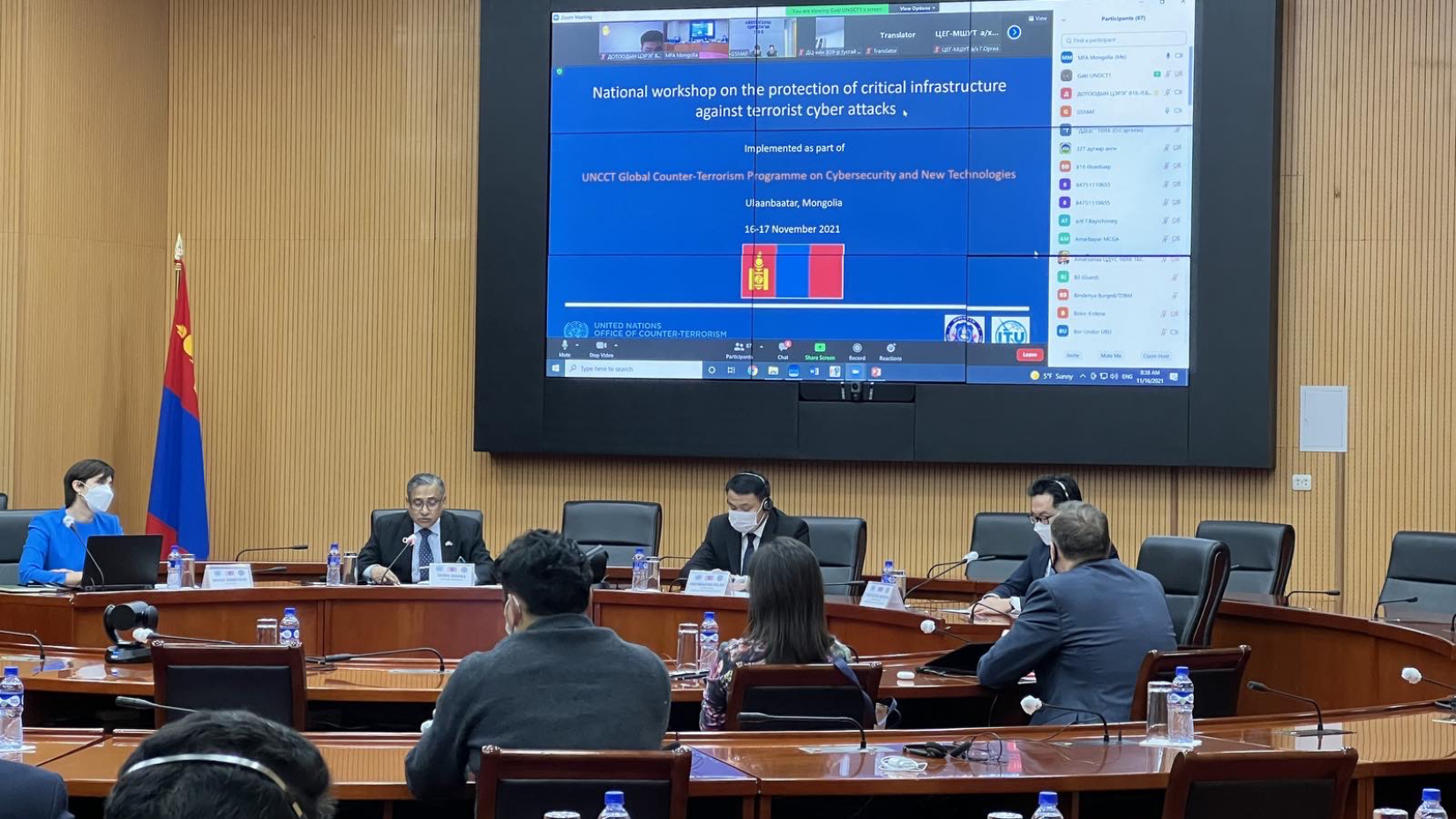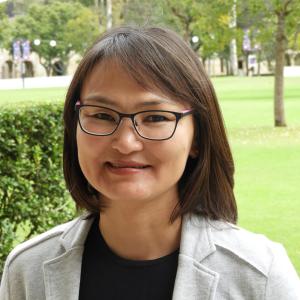Protecting National Critical Infrastructure from Terrorists' Cyber-Attacks in Mongolia
17 November 2021
Ulaanbaatar, 17 November 2021– The United Nations Counter-Terrorism Centre (UNCCT) of the United Nations Office of Counter-Terrorism (UNOCT) concluded a national workshop on “Protecting national Critical Infrastructure from Terrorists’ Cyber-Attacks” in Ulaanbaatar, Mongolia. The event was opened by Mr. Tapan Mishra, United Nations Resident Coordinator to Mongolia and Mr. Odonbaatar Peljee, Director General of the National Counter-Terrorism Centre of Mongolia.

In his welcoming remarks, Mr. Tapan Mishra, United Nations Resident Coordinator to Mongolia highlighted that “the global COVID-19 pandemic created an additional reliance of society on the use of new technologies, which, consequently, increased the vulnerability of the population to terrorists’ cyber-attacks. Under the leadership of UNCCT and its Global Programme on Cybersecurity and New Technologies, this workshop is bringing the best cybersecurity and counter-terrorism expertise across the United Nations system and beyond to support Mongolia in establishing a solid critical infrastructure protection framework to prevent and respond to terrorist cyber-attacks against critical infrastructure”.
Mr. Odonbaatar Peljee, Director General of the National Counter-Terrorism Centre of Mongolia stressed that “rapid development of information technology is offering multiple opportunities worldwide. Nonetheless, its misuse by terrorists and other criminal groups is creating a new challenge. As of Mongolia, we expeditiously consider improving our cybersecurity system and consequently ensure the protection of critical infrastructure from terrorist cyber-attacks. For instance, President of Mongolia Mr. Khurelsukh Ukhnaa has expressed his full support for National Counter-Terrorism Council in combat against cyber terrorism.
He added that "in addition, a package of draft legislations such as Law on Cybersecurity, Law on Public Information, Law on Protection of Personal Information, Revised Law on Electronic Signature are scheduled to be discussed by the Mongolian Parliament this week."
"I am confident that this national workshop will raise awareness of the risks of potential cyber-terrorist attacks on our country's critical infrastructure and build a national preparedness system and immunity against cyber terrorism," he concluded.
The two-day workshop was part of the UNCCT Global Programme on Cybersecurity and New Technologies, implemented in close coordination with the International Telecommunication Union (ITU), United Kingdom’s Home Office and Mongolia’s National Counter-Terrorism Centre. It was attended by over 200 participants from Mongolia’s counter-terrorism and law enforcement agencies, relevant ministries in charge of critical sectors, cybersecurity organizations, owners of critical infrastructures from the financial, health, energy and other critical sectors and academia.
Organized at the request of the Government of Mongolia, the workshop contributed to raising Mongolia’s awareness of terrorist cyber-threats to national critical infrastructures. It also helped strengthen the skills and capacities of relevant government agencies, private sector actors and academia to conduct a national cyber-risk assessment and develop critical infrastructure protection frameworks. The workshop ended with a table-top exercise on responding to a terrorist ransomware attack against a critical infrastructure, which fostered inter-agency and public-private sector collaboration on cybersecurity.
The workshop was funded by the Kingdom of Saudi Arabia.



